Life
Sign up for our newsletter
We summarize the week's scientific breakthroughs every Thursday.
-
 Plants
PlantsAncient trees’ gnarled, twisted shapes provide irreplaceable habitats
Traits that help trees live for hundreds of years also foster forest life, one reason why old growth forest conservation is crucial.
By Jake Buehler -
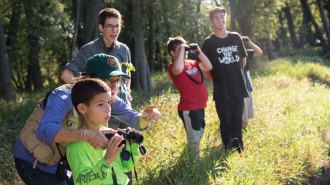 Animals
AnimalsA new book explores the transformative power of bird-watching
In Birding to Change the World, environmental scientist Trish O’Kane shows how birds and humans can help one another heal.
-
 Neuroscience
NeuroscienceAncient viruses helped speedy nerves evolve
A retrovirus embedded in the DNA of some vertebrates helps turn on production of a protein needed to insulate nerve cells, aiding speedy thoughts.
-
 Agriculture
AgricultureMixing up root microbes can boost tea’s flavor
Inoculating tea plant roots with nitrogen-metabolizing bacteria enhances synthesis of theanine, an amino acid that gives tea its savoriness.
By Nikk Ogasa -
 Health & Medicine
Health & MedicineNewfound immune cells are responsible for long-lasting allergies
A specialized type of immune cell appears primed to make the type of antibodies that lead to allergies, two research groups report.
-
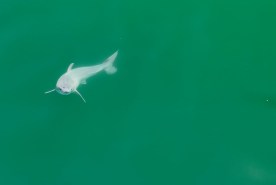 Animals
AnimalsDoes this drone image show a newborn white shark? Experts aren’t sure
If a claim of the first-ever sighting of a newborn white shark holds, it could help solve a mystery of where adult white sharks give birth.
-
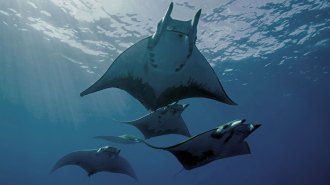 Animals
AnimalsMigratory fish species are in drastic decline, a new UN report details
The most comprehensive tally of how migrating animals are faring looks at more than 1,000 land and aquatic species and aims to find ways to protect them.
-
 Artificial Intelligence
Artificial IntelligenceHow do babies learn words? An AI experiment may hold clues
Using relatively little data, audio and video taken from a baby’s perspective, an AI program learned the names of objects the baby encountered.
-
 Neuroscience
NeuroscienceA new device let a man sense temperature with his prosthetic hand
A device that can be integrated into prosthetic hands capitalizes on phantom sensations to enable users to sense hot and cold.
By Simon Makin -
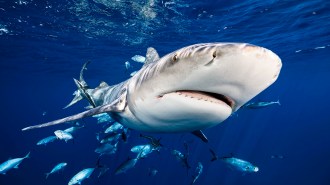 Animals
AnimalsHere’s how many shark bites there were in 2023
The chance of being bitten by a shark is still incredibly slim, according to a new report from the Florida Museum of Natural History.
-
 Animals
AnimalsThe first known scorpion to live with ants carries mini hitchhikers
Small arachnids hitch a ride on the scorpion, possibly to get inside food-rich ant nests.
By Jake Buehler -
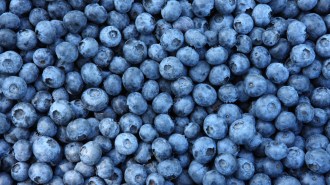 Plants
PlantsHere’s why blueberries are blue
Nanostructures in a blueberry’s waxy coating make it look blue, despite having dark red pigments — and no blue ones — in its skin, a new study reports.